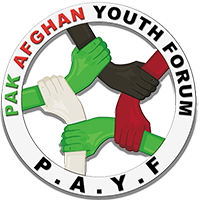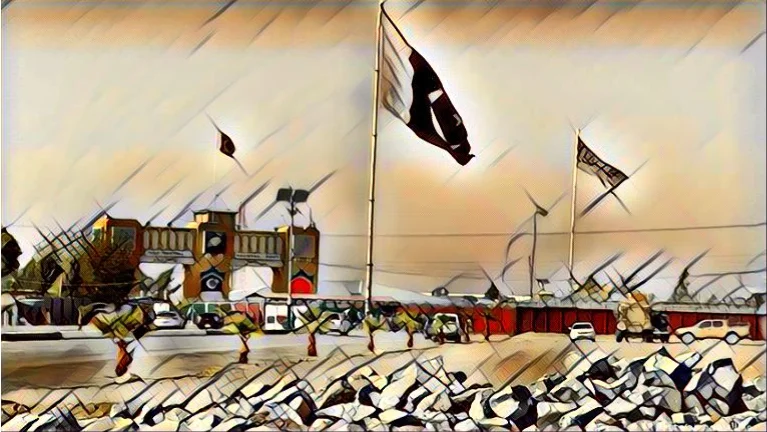Pakistan is finally set to shed light on the extent of its drug crisis. Pakistan’s Interior Minister, Mohsin Naqvi, has given the green light to this long-awaited National Drug Survey which is currently underway, with results expected by August 24, 2024. This comprehensive assessment, the first of its kind in 11 years, will shed light on the extent of a problem that has cast a long shadow over the nation.
The last survey, conducted in 2012-13, revealed that 6.7 million people in Pakistan had used substances other than alcohol and tobacco in the preceding year. The ongoing 2024 survey aims to provide accurate and comprehensive data on substance use across the country, gathering information from homes, educational institutions, and even slums.
Notably, Naqvi has directed the Anti-Narcotics Force (ANF) and the Pakistan Bureau of Statistics (PBS) to finalize the survey’s details by August 24, 2024, with potential cooperation from international development organizations. He emphasized that reliable survey data is crucial for making informed decisions on combating narcotics, as the issue is vital for the nation’s future.
Unmasking Umm-ul-Khubais: The Mother of Evils
Ummu-ul-Khubais, commonly known as “Mother of Evils,” are closely linked to many of the biggest challenges in Pakistan. These Narcotics substances are central to various social and moral issues, greatly contributing to crime, violence, financial loss, social breakdown, health problems, corruption, trafficking, and even threats to national security. Islamic teachings, especially those found in the Quran and Hadith, highlight the harmful effects of intoxicants, cautioning about their power to corrupt both individuals and society.
Narcotics: Catalysts of Chaos
The misuse of narcotics in Pakistan especially drug abuse has become a serious problem that impacts not just individual users but the entire society. A 2013 report from the United Nations Office on Drugs and Crime (UNODC) found that around 6.7 million Pakistanis were using different kinds of drugs. But this number only hints at a larger and more complicated issue that has been growing for years.
Crime and Violence
Narcotics play a big role in causing crime and violence in Pakistan. Using substances often leads to violent actions like hurting family members, attacking others, and killing people. Official crime statistics show that narcotics are connected to about 35% of killings and 55% of sexual attacks across the country. The widespread use of these substances makes problems worse in communities, causing a loss of social stability and more criminal behavior.
Economic Loss
The economic toll of narcotics is severe, with drug-related crimes, healthcare costs, and lost productivity costing the nation billions of rupees annually. A study from 2019 estimated that Pakistan loses over PKR 800 billion each year due to narcotics-related issues. This financial burden extends to families as well, where addiction often leads to unemployment, financial instability, and poverty. The loss of productive labor and the increased healthcare costs are significant drains on the national economy.
Social Decay
Narcotics also contribute to the erosion of social structures in Pakistan. Families and communities are destabilized as addiction spreads, leading to social decay. In families facing addiction, the number of divorces is much higher. A report from 2020 says that about 70% of divorces involve drugs. The trouble in family life and the social problems that come from it can cause lasting issues for the safety of communities all over the country.
Health Crisis
The use of narcotics has a serious effect on health, causing a major public health problem in Pakistan. The widespread use of these substances has increased the number of diseases like HIV/AIDS and hepatitis, mostly because people share dirty needles. A report from the Pakistan Health Research Council in 2022 says that the number of HIV/AIDS cases connected to drug use has gone up by 20% since 2010. Also, the healthcare system is overwhelmed and can’t give enough treatment and rehab services, so only 15% of those who need help get the right care.
Corruption and Trafficking
The trade in illegal drugs encourages corruption among government officials and police. Drug dealers usually pay bribes to these officials to ignore their actions, which weakens the law and makes people lose faith in government organizations. Pakistan is a key route for drugs, especially opiates from Afghanistan, making the problem worse. Around 40% of the world’s opium trade goes through Pakistan. The connection between drug trafficking and corruption creates a big problem for managing the country and enforcing laws.
National Security Threats
Narcotics also pose a significant threat to Pakistan’s national security. The revenue generated from the narcotics trade often funds terrorist organizations and non-state actors, contributing to instability and violence in the region. A 2021 report by the United Nations Office on Drugs and Crime highlighted that several militant groups in Pakistan rely on narcotics trafficking as a primary source of funding. This connection between narcotics and terrorism presents a grave threat to the nation’s security and requires urgent and coordinated action to address.
Shattered Lives: The Human Cost
The widespread use of drugs in Pakistan has serious effects on the country’s social fabric. Families suffer the most from this problem, as drug use is a major cause of divorce, family violence, and neglecting children. This often leads to financial problems, as families have to pay for the costs related to addiction, such as medical bills and legal expenses.
Children living in homes affected by drugs are especially at risk. They often grow up in environments where drug use and related behaviors are common. This can disrupt their education and emotional growth and increase the chance that they will start using drugs themselves, continuing a harmful cycle of addiction and social decline.
Youth Under Siege: A Generation at Risk
Youth in Pakistan are facing a growing danger from drugs. A study in 2023 found that 25% of college students have experimented drugs. Colleges and universities are now common places for drug use, often because of friends influencing each other, the stress of school, and the easy availability of drugs. This situation is very worrying because it affects the health of students now and could also harm the country’s future, as these students will be the leaders and experts of tomorrow.
At the same time, Pakistan is becoming an important center for vaping, with expected earnings of $77.2 million by 2024 and a yearly increase of 1.39%. The growing interest in vaping, particularly among young people, mirrors previous patterns with cigarettes, where initial claims of safety were later found to be false. The absence of strict rules and the appeal of flavored products help its expansion. To address these concerns, the government needs to launch public awareness programs, apply tougher regulations, and require labels on ingredients. Both individuals and healthcare experts should promote these actions and encourage studies on the lasting impacts of vaping.
Turning the Tide: A Call to Action
The widespread problem of narcotics in Pakistan requires urgent and comprehensive action. Public education is the first line of defense. Incorporating awareness programs into school curricula and launching nationwide campaigns to challenge the normalization of substance use are critical steps. Young people, in particular, must be educated about the dangers of narcotics and the long-term consequences of substance abuse.
Stronger law enforcement is also essential. The current crime statistics highlight the need for stricter penalties for narcotics-related offenses, from trafficking to personal use. Law enforcement agencies must be equipped with the necessary resources and training to effectively combat the narcotics trade and its associated crimes.
Expanding access to treatment and support services is crucial. Currently, only a small fraction of those struggling with substance abuse in Pakistan receive adequate help. Rehabilitation centers must be better funded, and healthcare providers should be trained to handle the complexities of addiction. Ensuring that support is accessible to all who need it is a critical step in addressing this crisis.
A Future at Stake!
Narcotics, the “Mother of Evils,” pose a silent yet deadly threat to Pakistan’s future. The data highlights the urgent need for action. By raising awareness, strengthening laws, and expanding treatment options, Pakistan can begin to combat the insidious effects of substance abuse. The time to act is now, before more lives are lost to this hidden crisis, and before the nation’s future is compromised.
This article reflects the author’s perspective and not the official views of the Pak-Afghan Youth Forum (PAYF).



